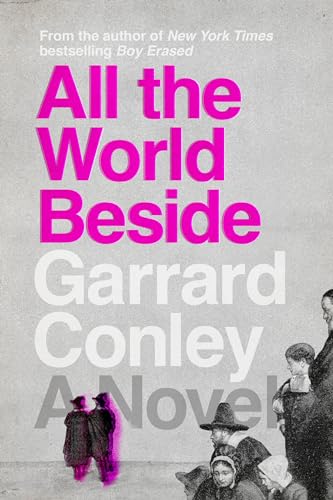All the World Beside
Conley’s debut novel brings us to a small Massachusetts town—the symbolically-named Cana—while dramatizing an affair between two married Puritan men and its fallout. In 1730, Nathaniel Whitfield is a charismatic minister whose powerful words on the pulpit had brought about a religious awakening and persuaded 200 souls to follow him to a new settlement. Physician Arthur Lyman and his family, recent arrivals from Boston, weren’t part of the original chosen group and are made to feel like continual outsiders. The two men are close friends and something more, which fills Nathaniel with intense guilt, while Arthur finds ways to draw closer to his lover.
Their secret, however, doesn’t remain so. After viewing the pair’s late-night meeting in the forest, in a scene reminiscent of Hawthorne, Nathaniel’s daughter Sarah gets firsthand evidence of problems within her family. Gradually, Nathaniel’s depressive wife Catherine realizes the truth, and so does Arthur’s forthright wife, Anne. The two families’ unwitting complicity and silence, preferring not to voice a relationship they can hardly explain, ring true for the era. Even more, Nathaniel’s role comes with high expectations for another Christian revival, but his longings for men make him feel completely unworthy.
Conley confidently acknowledges the reality that queer people lived and loved in all past eras, one of his admitted goals, while imbuing his story with considerable depth about how religion can simultaneously exalt and constrain us. Notably, he looks beyond the core relationship to show its repercussions on family members, especially Sarah and her young brother, Ezekiel. (Actually, the later sections focus so much on others that the plot feels a bit diffuse.) In a particularly intriguing subplot, Sarah gets held back by her gender after discovering a surprising talent. This novel has a lot going on, and it mostly works, all evoked in thoughtful language bordering on mystical at times.










